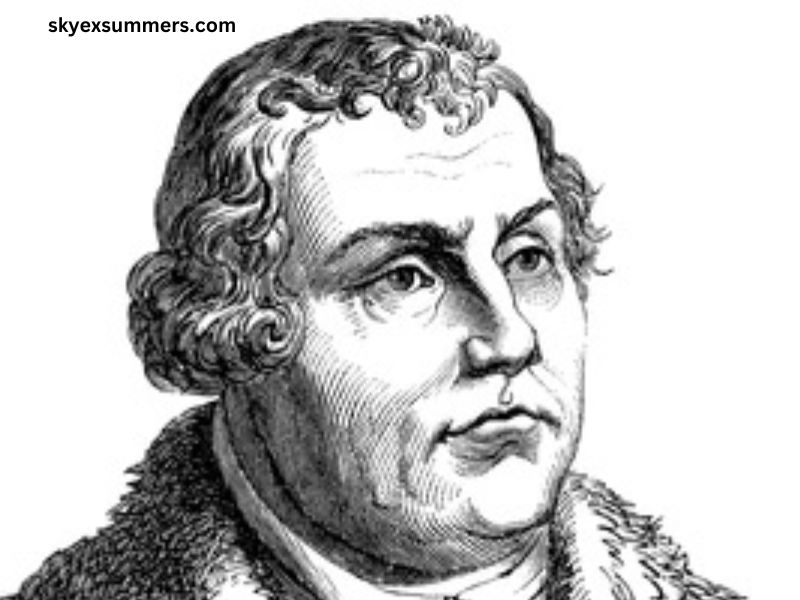In the tumultuous period of the early 16th century, two prominent figures emerged in Europe, whose actions and beliefs would profoundly impact the course of history: King Henry VIII of England and Martin Luther, the German monk and theologian. A significant similarity between Henry VIII and Martin Luther was that both challenged the authority of the Catholic Church, albeit from different perspectives and with different motivations. This article explores the intricacies of their challenges to the Church, the context in which they arose, and the lasting consequences of their actions.
Historical Context
To fully understand the challenges posed by Henry VIII and Martin Luther, it is essential to examine the historical context of the early 16th century. The Catholic Church was the dominant religious institution in Europe, wielding immense power over both spiritual and political matters. However, this period also saw the beginnings of the Renaissance, which fostered a spirit of inquiry and individualism. Humanism, a movement that emphasized the value of human potential and achievement, began to take root, leading many to question established doctrines and the Church’s authority.
Henry VIII: The Break with Rome
Henry VIII’s challenge to the Catholic Church was deeply personal and politically motivated. Initially, Henry was a staunch defender of the faith, earning the title “Defender of the Faith” from Pope Leo X for his opposition to Martin Luther’s ideas. However, his desire for a male heir and his subsequent marriage to Anne Boleyn led him to seek an annulment from Catherine of Aragon, his first wife. When the Pope refused to grant the annulment, Henry took drastic measures.
In 1534, Henry VIII enacted the Act of Supremacy, which declared him the Supreme Head of the Church of England. This bold move not only severed ties with the Catholic Church but also laid the groundwork for the English Reformation. Henry’s actions were not purely theological; they were deeply intertwined with his need for political power and personal desires. By establishing the Church of England, Henry positioned himself as the ultimate authority, effectively challenging the Pope’s influence in England.
Martin Luther: A Theological Rebellion
In contrast, Martin Luther’s challenge to the Catholic Church was primarily theological. Luther, a monk and professor of theology, became increasingly disillusioned with the Church’s practices, particularly the sale of indulgences, which he viewed as corrupt and contrary to the teachings of Christ. In 1517, Luther famously nailed his “Ninety-Five Theses” to the door of the Wittenberg Castle Church, sparking widespread debate and dissent.
Luther’s core belief was that salvation could be attained through faith alone, not through works or the purchasing of indulgences. He advocated for a return to the scriptures as the sole source of authority in matters of faith—a principle known as “sola scriptura.” Unlike Henry, Luther did not seek to establish a new church for personal gain; rather, he aimed to reform the existing Church from within. His ideas spread rapidly due to the advent of the printing press, leading to the Protestant Reformation.
Similarities in Their Challenges
Despite their different motivations and methods, both Henry VIII and Martin Luther fundamentally challenged the authority of the Catholic Church. Their actions reflected a growing sentiment across Europe that questioned the Church’s practices and power.
Personal and Institutional Motivations
Both figures were driven by personal motivations that intersected with broader institutional concerns. Henry’s desire for an annulment was rooted in his need for a male heir, which he believed was crucial for the stability of his reign and the continuation of the Tudor dynasty. His decision to break away from the Catholic Church was also influenced by the desire to consolidate power within England, eliminating foreign influence from the Pope.
Luther’s motivations were theological and ethical, grounded in a quest for genuine faith and spiritual truth. However, his challenge to the Church’s authority also resonated with a populace increasingly frustrated by clerical abuses and the Church’s wealth. The Reformation, fueled by Luther’s writings, offered a voice to those disillusioned with the status quo, allowing common people to question the practices of the Church.
Impact on Religion and Politics
Both Henry VIII and Martin Luther significantly impacted not only religion but also politics. Henry’s establishment of the Church of England led to a series of religious and political upheavals, including the dissolution of monasteries and the redistribution of Church lands. This shift allowed for the rise of Protestantism in England and changed the political landscape, as the monarchy asserted greater control over religious affairs.
Luther’s theological assertions laid the foundation for various Protestant denominations and sparked religious wars throughout Europe. His emphasis on individual interpretation of the scriptures empowered laypeople, leading to a decline in the Church’s control over spiritual matters. The resulting fragmentation of Christianity marked a significant shift in European history, leading to conflicts such as the Thirty Years’ War.
Long-lasting Consequences
The challenges posed by Henry VIII and Martin Luther had profound and lasting consequences for Europe. Their actions contributed to the decline of the Catholic Church’s influence, leading to an era characterized by religious pluralism and ongoing theological debates.
The Rise of Protestantism
Luther’s influence extended far beyond Germany, igniting the Protestant Reformation across Europe. Various reformers, inspired by his ideas, emerged in different regions, each contributing to the diversification of Christian thought. The establishment of Protestant denominations such as Lutheranism, Calvinism, and Anglicanism represented a significant departure from Catholic doctrine, emphasizing personal faith and the authority of scripture.
In England, the Church of England evolved, reflecting both Catholic and Protestant elements. The religious landscape became increasingly complex as various factions emerged, leading to tensions that would continue for centuries.
Political Ramifications
The political ramifications of both figures’ actions were significant. Henry VIII’s break with Rome set a precedent for the intertwining of religious and royal authority. Subsequent monarchs in England would grapple with the implications of this separation, leading to conflicts such as the English Civil War.
In contrast, Luther’s ideas contributed to the rise of secular governance in many parts of Europe. The questioning of Church authority paved the way for the Enlightenment and the emergence of modern nation-states, where rulers sought to assert their authority independent of papal influence.
Conclusion
In summary, a notable similarity between Henry VIII and Martin Luther was that both challenged the authority of the Catholic Church, albeit from distinct angles. Henry’s break from Rome was driven by personal and political motivations, while Luther’s rebellion was rooted in theological concerns. Their actions not only reshaped the religious landscape of Europe but also had far-reaching political consequences that resonated through history.
The legacy of their challenges continues to influence contemporary discussions about faith, authority, and governance. As we reflect on their respective roles in history, it becomes clear that the struggles for religious autonomy and personal conviction initiated by Henry VIII and Martin Luther were pivotal in shaping the modern world. Their stories remind us that the quest for truth and authority often emerges from the interplay of personal desires and broader societal transformations.



